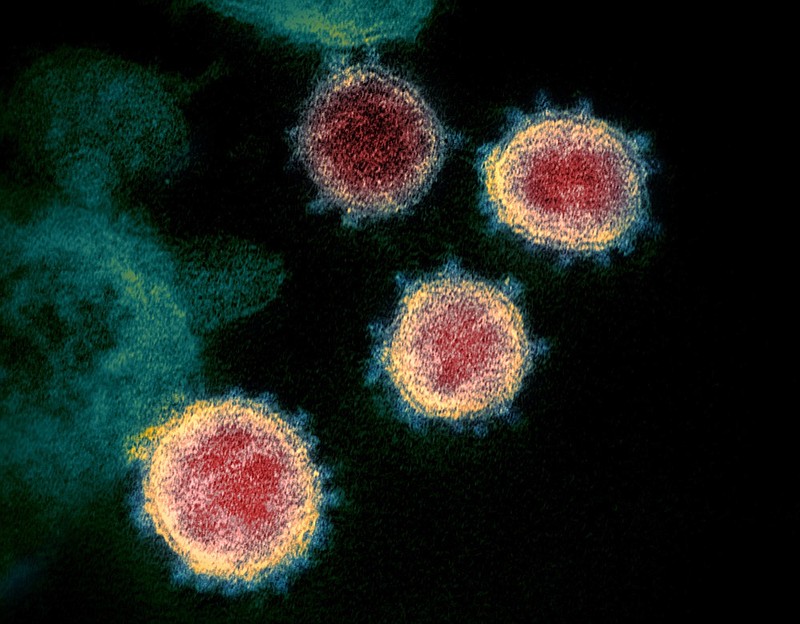This, too, shall pass.
Nothing lasts forever, even coronaviruses.
Inhale. This is what it feels like to live through a pandemic.
Exhale. But it won't last.
Yes, it's unsettling and disrupting. Yes, we may even get sick. Or die.
Yet COVID-19? Social distancing? A suspended NBA season?
These things, like all things, will pass.
Think back to New Year's. Even Groundhog Day. Could you have imagined that within weeks, schools would close, March Madness be canceled and toilet paper aisles run dry?
"We've got enough booze for either the apocalypse," one friend said, "or a Sewanee wedding."
How quickly life can change.
How interconnected our world really is.
This coronavirus is teaching us that.
COVID-19 is a very, very good teacher.
In many ways, Americans are uniting in ways unseen since 9/11. We're washing hands like we're surgeons. Avoiding crowds. Chins up in the face of inconvenience and fright. Working from home. These are our victory gardens.
(My friend the Rev. Dr. Clay Thomas, pastor at Rivermont Presbyterian, has suggested replacing handshakes with placing a hand over our heart.)
Health care workers? Scientists? Thank you. You are our front lines, our hope; I hope young people flood into science and health care industries, seeing them as meaningful careers in national public service.
America's sports world? This may be your finest hour. By canceling tournaments and suspending seasons, sports leaders sacrificed billions in revenue in the name of public safety and well-being. You did the right thing. We aren't always sure. (At one point, the NBA planned on playing games without fans. Shoot, our church softball team has been doing that for years.)
Local Chattanoogans? Many of you are calling forth your best selves - helping in ways both seen and unseen. (We love you, Brad Whitaker.)
"I am prepared to offer myself as a human test subject for tests for a vaccine for the coronavirus," Harry Geller wrote in a letter to the editor. In 1992, Geller said, he volunteered for an AIDS vaccine trial.
"We, as a nation, must prepare ourselves with determination and maturity," he wrote.
And as a county.
The coming days will test us. This may end soon; it may not. Will we look back and be proud of our response?
How can we help provide food and nourishment to countless children who depend on schools for food?
How can we support hourly workers, especially in the service industry, upon whom our downtown tourist economy runs?
If summertime arrives but no tourists do, what happens to $8-an-hour waiters, dishwashers and hotel staffers?
How many critically ill patients can our hospitals hold?
Hospital leaders, what happens if there are more critically ill patients than beds? Or ventilators? What is your plan?
Yes, this pandemic will end.
Until it does, as Mr. Geller said: let's arm ourselves with determination and maturity.
***
More than one century ago, Ed Johnson was lynched by a white mob from the Walnut Street Bridge.
This Thursday, 114 years ago.
Over time, Johnson's story was forgotten by whites and never forgotten by black Chattanooga. As white Chattanooga reimagined the bridge as a postcard-tourist destination, black Chattanooga often vowed: we will never step foot there.
Yet, in the last several years, things began to shift, thanks to the intentional work of a devoted group of men and women, black and white: the Ed Johnson Project.
They created scholarships. Wrote plays. Held intentional conversations. A documentary. An annual ceremony on the bridge.
They fundraised $1 million for a memorial.
Last summer, Ed Johnson Project leaders believed the city would begin installation work on the memorial soon.
Yet the city tied the installation to repairs on the bridge: one won't happen without the other.
"The groundbreaking is scheduled to begin in the fall, with the completion in the spring of 2020," said organizer, educator and playwright LaFrederick Thirkill.
He said that in July 2019.
Reportedly, this will take another year entirely.
"The Walnut Plaza and Ed Johnson Memorial projects are currently scheduled to begin in late May. It's an estimated eight-month contract, which would end in January 2021," said Richel Albright, communications director for City Hall.
The renovation plans must be approved by the Tennessee Historical Commission. The city submitted a request in April 2019.
Does it normally take so long? Renovations aren't earthshaking: pressure washing, wood decking and painting.
"A little TLC," Albright said in 2019.
Elsewhere, Patten Parkway's being redone. Boutique hotels pop up. A new Miller Park. And interstate exchange.
Why so long for Ed Johnson? His memorial is 114 years overdue.
David Cook writes a Sunday column and can be reached at dcook@timesfreepress.com.

